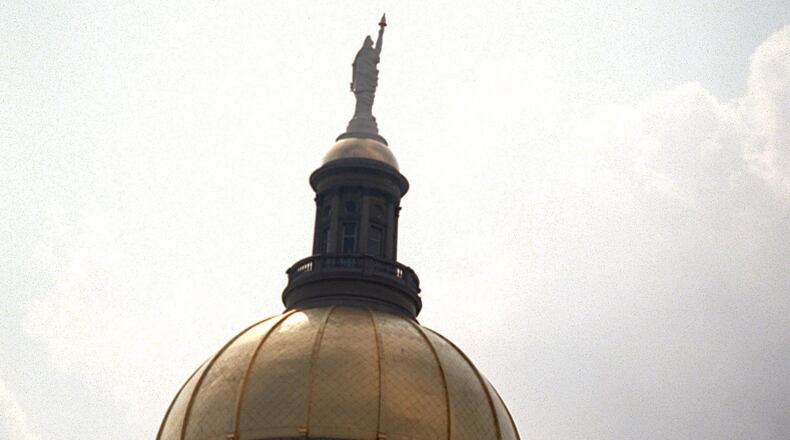A split Georgia ethics commission on Tuesday backed a 30-year-old state law that bans legislators from raising campaign money until a legislative session is over.
The commission voted 3-2 for an advisory opinion that says lawmakers can’t raise money while the General Assembly’s session is suspended because of the coronavirus pandemic.
That’s important to more than three-dozen incumbents who face opposition in the June 9 primary. Their opponents can raise campaign money now. Lawmakers can’t until the General Assembly reconvenes and then adjourns for the year.
MORE: A map of coronavirus cases in Georgia
MORE: Real-time stats and the latest news on the coronavirus outbreak
Matthew Weiss, an attorney representing state Sen. Horacena Tate, D-Atlanta, who faces three primary opponents, argued the March coronavirus suspension was tantamount to an adjournment of the session. That would allow lawmakers to raise money, a position backed by two members of the commission.
But Eric Barnum, a commission member, said there are bills lawmakers may vote on when they return.
“If the idea is we don’t want our legislators being influenced by campaign contributions while legislation is pending, we have to take that into consideration,” Barnum said.
State Rep. Micah Gravley, R-Douglasville, told the commission he opposed allowing lawmakers to raise money during the suspended session
In a separate vote, the commission backed a legal opinion allowing incumbents to use their own money to pay campaign expenses during the suspension and then be reimbursed after the session officially ends.
Jake Evans, the chairman of the ethics commission, said he has fielded a lot of questions about what legislators can and can’t do.
The General Assembly passed the in-session ban on contributions in 1990. The measure was designed to keep lawmakers from taking checks during a session from lobbyists and others hoping to get their vote on legislation or to obtain state funding.
However, legislators never contemplated a global pandemic that would force a suspension of a legislative session, preventing them from raising money for additional months and giving an advantage to their opponents.
As The Atlanta Journal-Constitution reported last week, the session’s suspension may last beyond the June primary, meaning lawmakers couldn’t raise more money for primary campaigns.
The House and Senate Republican caucus political action committees and GOP legislative leaders have more than $3 million in their campaign accounts and will commit some of their resources to help their incumbents beat back challenges.
However, about two-thirds of state lawmakers being challenged in June are Democrats, who don’t have such resources.
About the Author
Keep Reading
The Latest
Featured




